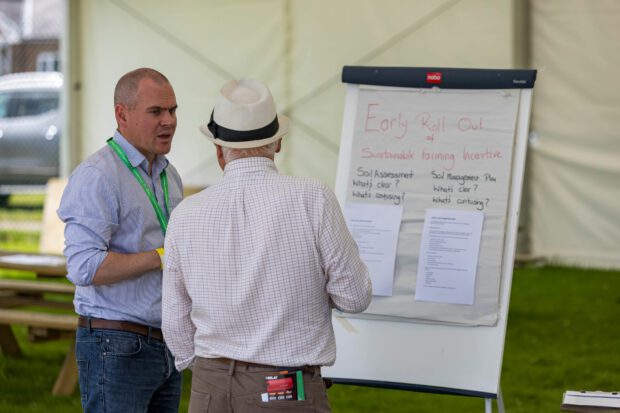Our test and learn approach
Written by The Team

Although we’ve written about what we’re doing and how we’re doing it, we thought it might be useful to provide some rationale for our test and learn approach to designing and rolling out reform.
We’ve already set out our long-term plans in the Agricultural Transition Plan, published at the end of last year. That Plan is our vision for a sustainable and productive agriculture sector in England, and sets out what will become available during our 7-year transition.
Our approach ensures that different schemes and services will launch and develop incrementally throughout the 7 years – not suddenly, and not all in one go.
And we’ll also be publishing specific scheme objectives so you can see how the schemes we launch deliver the outcomes we are committed to achieving.
We know some people will want to move quicker (or, indeed, slower) but we’re designing and managing things iteratively for a few reasons.
Firstly, we know that our policies and schemes stand a better chance of success if we take the time to listen to and work with farmers as we design services for them. Their insights are invaluable. We call this way of working ‘co-design’. You can find out more about our co-design work here on the blog.
Secondly, we want to make sure that farmers have time to plan and adapt. We want to make sure they have the time they need to make decisions that work for their farms, families and businesses. We also want to have support in place to prepare for new schemes and grants coming along during the next few years.
Working in an iterative and collaborative way helps us test ideas at a small scale and develop them incrementally, to make sure we get it right when we roll them out at full scale. This helps avoid making costly mistakes and inconveniencing people with services that don’t work for them.
We’re testing our new schemes and services to see how they work in theory and in practice. These tests and trials are taking place across the country, with over 3,000 people taking part so far. We blog about our findings regularly.
We’re also using pilots to test some schemes, such as the Sustainable Farming Incentive pilot. We want to ensure that the solutions we are offering are both rewarding for farmers and land managers and are delivered in a smooth and stress-free way.
We provided an update on our progress against the plan in June, and our Programme Director, Janet Hughes, also gave an overview of our progress and set out what you can expect to hear more on this year here on the blog.
If you have any questions, please leave a comment below. Don’t forget to subscribe to this blog for the latest updates, and if you would like to help shape the future of agriculture in England, please email [email protected].
Continue reading on Defra Future Farming Website...
Written by The Team

Although we’ve written about what we’re doing and how we’re doing it, we thought it might be useful to provide some rationale for our test and learn approach to designing and rolling out reform.
We’ve already set out our long-term plans in the Agricultural Transition Plan, published at the end of last year. That Plan is our vision for a sustainable and productive agriculture sector in England, and sets out what will become available during our 7-year transition.
Our approach ensures that different schemes and services will launch and develop incrementally throughout the 7 years – not suddenly, and not all in one go.
And we’ll also be publishing specific scheme objectives so you can see how the schemes we launch deliver the outcomes we are committed to achieving.
We know some people will want to move quicker (or, indeed, slower) but we’re designing and managing things iteratively for a few reasons.
Firstly, we know that our policies and schemes stand a better chance of success if we take the time to listen to and work with farmers as we design services for them. Their insights are invaluable. We call this way of working ‘co-design’. You can find out more about our co-design work here on the blog.
Secondly, we want to make sure that farmers have time to plan and adapt. We want to make sure they have the time they need to make decisions that work for their farms, families and businesses. We also want to have support in place to prepare for new schemes and grants coming along during the next few years.
Working in an iterative and collaborative way helps us test ideas at a small scale and develop them incrementally, to make sure we get it right when we roll them out at full scale. This helps avoid making costly mistakes and inconveniencing people with services that don’t work for them.
This is why we’re testing and trialling
We’re testing our new schemes and services to see how they work in theory and in practice. These tests and trials are taking place across the country, with over 3,000 people taking part so far. We blog about our findings regularly.
We’re also using pilots to test some schemes, such as the Sustainable Farming Incentive pilot. We want to ensure that the solutions we are offering are both rewarding for farmers and land managers and are delivered in a smooth and stress-free way.
We provided an update on our progress against the plan in June, and our Programme Director, Janet Hughes, also gave an overview of our progress and set out what you can expect to hear more on this year here on the blog.
If you have any questions, please leave a comment below. Don’t forget to subscribe to this blog for the latest updates, and if you would like to help shape the future of agriculture in England, please email [email protected].
Continue reading on Defra Future Farming Website...





